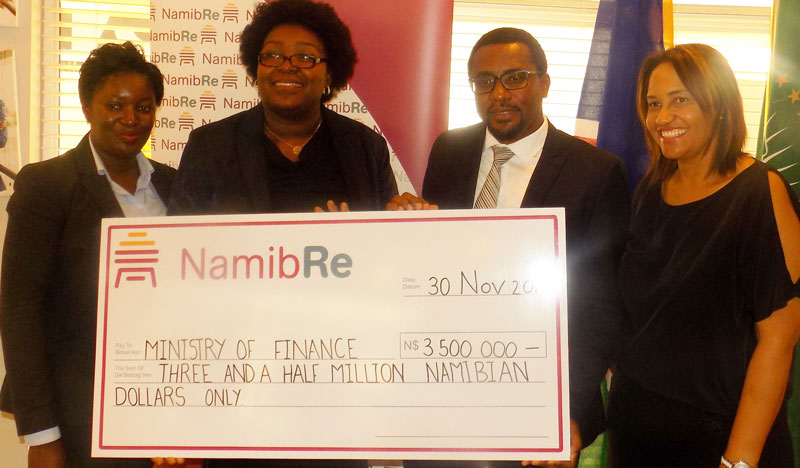
Net Metering opens the door for private generation of electricity

As of 01 July this year, all electricity utilities must have the systems in place to allow private households to generate their own electricity and sell the surplus back to the utility.
The promulgation of the so-called Net Metering Rules by the Electricity Control Board on 15 November last year under the Electricity Act, effectively forces the door open for all private households and companies, to offset a substantial part of their monthly electricity bill, by generating their own electricity and sending the surplus back into the grid.
Like all other utilities selling electricity to private clients, both households and companies, the City of Windhoek has up until the end of June 2017 to implement the Net Metering rules.
According to the Electricity Control Board, the Net Metering rules will come into effect on 15 May for all distribution licensees.
The relationship between the City of Windhoek and the Electricity Control Board is governed through a Power Supply Agreement that sets out the City’s obligations in supplying its customers with power.
The system is simple in theory. Electricity users who install their own solar plants generates electricity for own use to reduce their dependence on the municipality’s grid. When they generate a surplus, it flows back into the grid through a bi-directional meter that subtract the units supplied by the household, from the units received from the City. But in practise, there are a few catches.
Electricity Control Board, CEO, Foibe Namene said that there will be no physical monetary compensation. “The customer is only credited for the kWh value as an avoided cost. Any unused credit us transferred to the next month. At the end of the distributions financial period the credits will be reset to zero.” This applies to households as well as companies with solar intallations. Owners of solar plants will therefore not be able to claim any money from their municipalities, but only reduse their usage. At the end of the financial year, any credit on the electricity bill is forfeited.
Namene said that by generating their own power, households are relieving pressure from the national grid due to reduced demand. In return, the owners of private electricity installations, are compensated by having their number of units reduced.
Namene added that a Net Metering connection agreement should be concluded between the City of Windhoek as the distributor and all customers interested in connecting their own installations before the June deadline.
Home owners that sign the Net Metering connection agreement must have a meter installed that is capable of measuring electricity flow in forward and reverse directions in two separate measuring registers and it may not be of the pre-paid type. The City of Windhoek is currently registering home owners to enable them to install the bi-directional meters.
A City of Windhoek employee from the Electricity Department said that only solar power generation is feasible for residential areas.
The power utility, in this case the City of Windhoek, will approve net metering on a first-come-first-serve principle until the limits of their infrastructure and equipment in the area have been filled.
A Windhoek based electrical engineering firm, Xami Power Engineering stated that households can only generate a maximum 500kVA.
“The on-site generation capacity of your system may not exceed the lower of the main electricity supply circuit breaker current rating converted to the kVA of the facility which may not exceed 500kVA” Xami added.
According to Xami all single-phase net metered installations with a main circuit breaker rating of 60 Ampere and less are classified as a small renewable in-feed customer and all other net metered installations must be classified as embedded generation.
“Solar, wind, water, geothermal, biomass, bio-gas, bio-fuel and fuel cell resources are all technologies that the Electricity Control Board deems eligible for power generation technologies that fall under the Net Metering rules,” they added.
The Net Metering rules apply to all utilities, i.e. all municipalities and electricity distributors across Namibia. It does not affect the Power Purchase Agreements between the state utility, NamPower, and private commercial generators, known as Independent Power Producers.










































